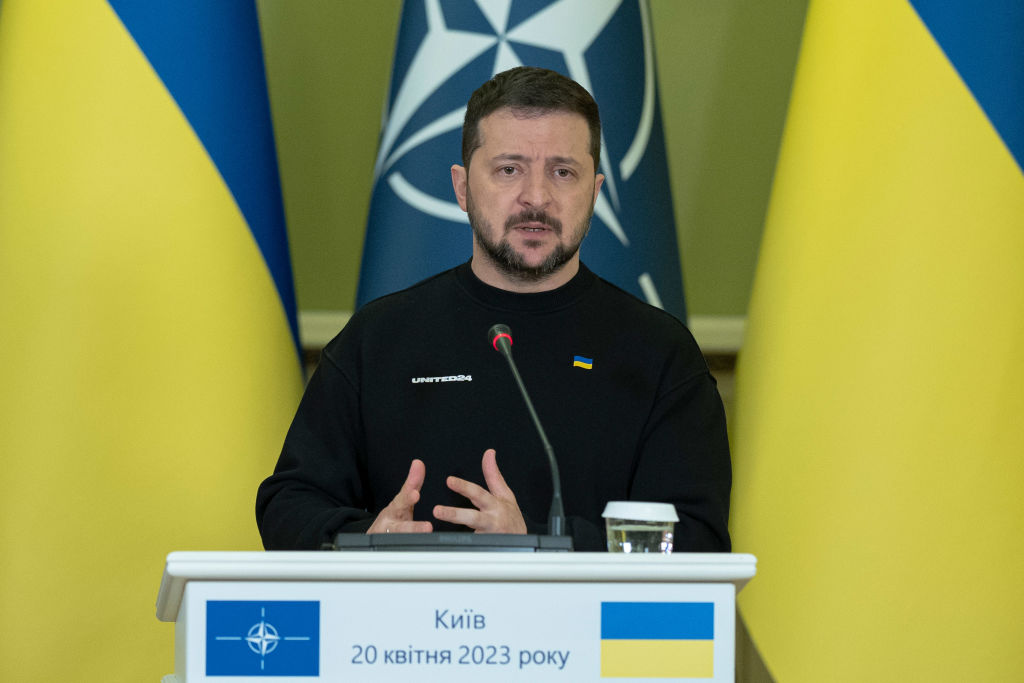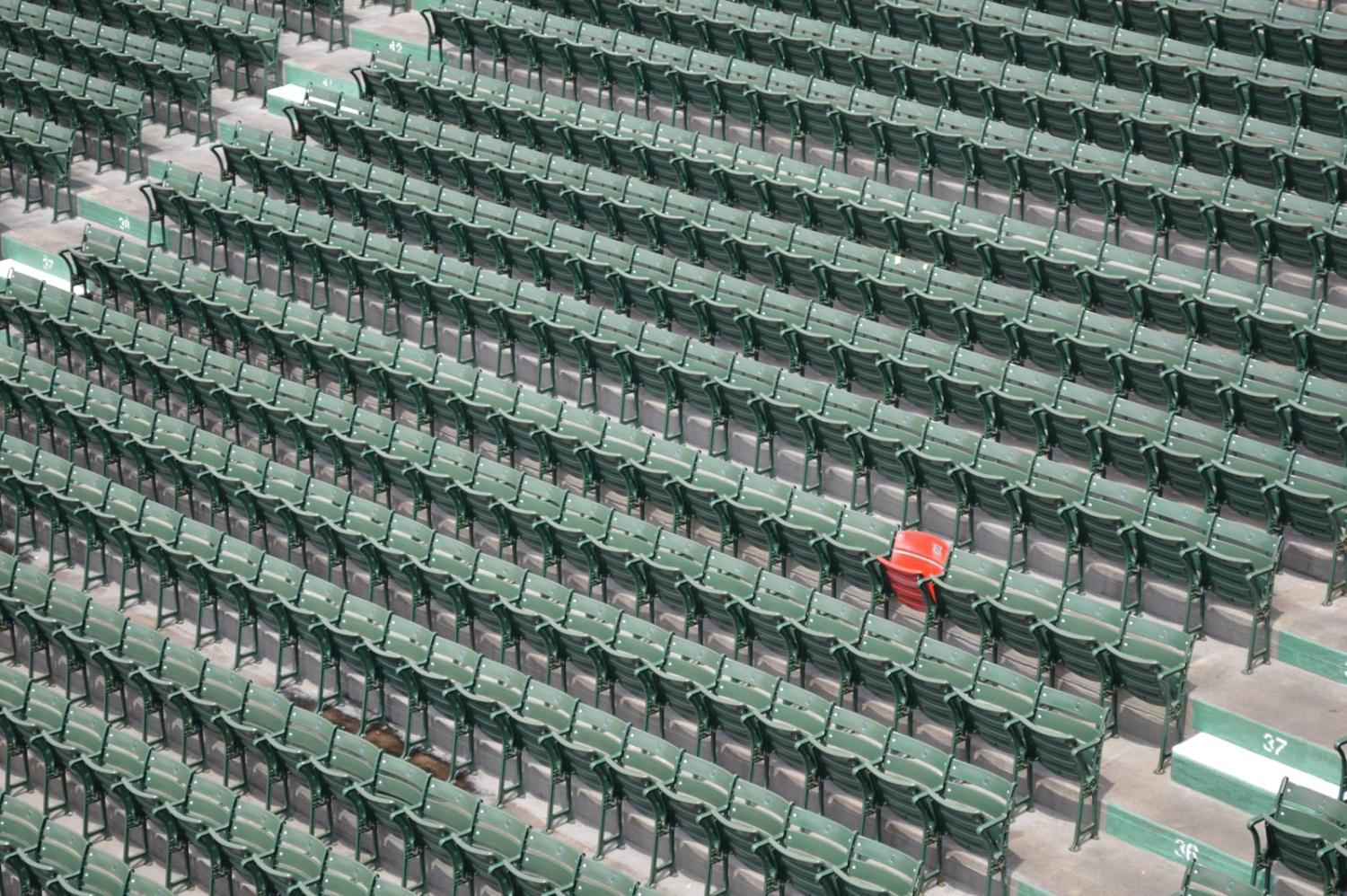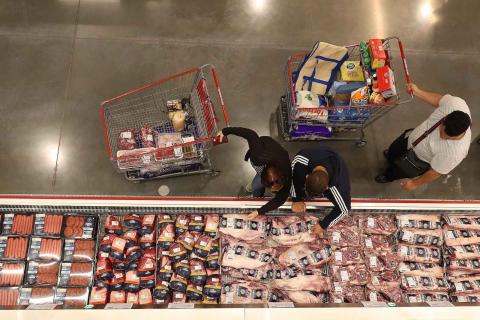When NATO leaders gather in Vilnius, Lithuania, next week, Ukraine will dominate discussions.
Australia is not a NATO member. We have been invited to this and previous NATO summits, however, because our ability to make a positive contribution to global security is acknowledged.
NATO countries have spent the past year equipping and training the Ukrainian armed forces, in anticipation of a Ukrainian counter-offensive, which has now commenced. Taboos have been shattered along the way. Germany and other NATO partners have sent battle tanks to Ukraine, including the Leopard 2. The United Kingdom has sent the Storm Shadow cruise missile system. US-made Patriot missiles now form an important part of Ukraine’s air defences. And combat aircraft, such as the F-16 or the F/A-18, may not be far away.
Ukraine’s counter-offensive is in its early days. But, away from the battlefield, developments in Russia over the ten days since the Wagner rebellion have given cause for hope.
Modern war is as much a contest between political systems as it is between armed forces. Ukraine’s political system has withstood immense pressure and yet only grown stronger for it. Russia’s political system, by contrast, has started to crack.
While the immediate threat to Vladimir Putin’s leadership from the Wagner revolt may have been averted, both he and the Russian state are weakened from the episode.
Ukraine is a clear beneficiary of this crisis. Instability in Moscow will hurt the front-line morale of Russian troops in Ukraine. Russian President Vladimir Putin and his military leadership will now need to be more concerned about threats to their rule domestically, lessening their ability to focus on the military campaign. And the ability to further mobilise the Russian public and economy behind the war effort will be constrained.
When NATO leaders meet in Vilnius, it will be in a spirit of renewed optimism. The main action item will be what more the West can do to capitalise on Russian disarray and tilt the scales in Ukraine’s favour.
So, when Prime Minister Anthony Albanese turns up, what will he be bringing to the table?
Ukraine has made clear that the provision of Hawkei armoured vehicles and M1A1 Abrams tanks would improve its fighting capability. Australia has declined both these requests. The Hawkei armoured vehicles, of which Australia has 233 and more on the way, are being held back because of a supposed problem with the brakes.
Australia also has a fleet of 59 M1A1 Abrams tanks, due to be replaced with a new variant (the M1A2) from 2024. These too have been declined, supposedly because Australia is uncertain about Ukraine’s ability to operate them.
Other Western nations have reached for the top shelf and provided Ukraine with the best of their capabilities, often creating gaps in their own arsenal. But in Australia, we seem to have gone to the back shed instead, clearing out unwanted inventory.
Of even more puzzlement is Australia’s continued refusal to return its ambassador to Kyiv, despite repeated personal requests from Ukraine’s President Volodymyr Zelenskyy.

Returning Australia’s ambassador would be a strong symbolic show of diplomatic support for Ukraine. Keeping Australia’s ambassador in neighbouring Poland, with its embassy closed, is a vote of no-confidence. Of the 81 missions that left Kyiv at the start of the war, 67 are reported to have now returned. This includes countries such as Japan, the Netherlands, the United Kingdom and the United States.
Of even greater mystery, Canada – with whom Australia shares diplomatic premises in Ukraine – has made the decision to return to Kyiv, while Australia has continued to declare it unsafe to do so.
What is behind Australia’s reluctance? The Secretary of the Department of Foreign Affairs and Trade, Jan Adams, told a Senate hearing last month that there is “no other country where Australia has an embassy in an actual war zone, and certainly none that have drone and missile strikes occurring”.
This may be the case today, but it has never been true as a matter of history or policy. Australia kept its embassies in Kabul and Baghdad open and operational at times of civil war. Australia’s embassy in Beirut remained open and operational during the Israel-Lebanon war of 2006.
When I was ambassador to Israel from 2013 to 2017, the embassy stayed open and operational through the last major Israel-Gaza conflict, when there were frequent missile attacks on Tel Aviv.
It seems to be a case of overly cautious security advice wagging the operational dog. The security advice should help inform our diplomatic presence and posture. It should not be allowed to have a veto over what is fundamentally a national interest decision.
Just as Australia’s military personnel are intended to be sent to dangerous places, and to look after themselves, so too our diplomats are trained and meant to operate in politically unstable and compromised security environments. It is the nature of the job, and it’s exactly these sorts of places where a diplomatic presence can offer the most insight and value.
It already looks as though Australia will turn up at Vilnius as an invited guest with a package of military support that is underwhelming, to say the least.
But at least Albanese could meet one of Ukraine’s legitimate requests and announce a return of our ambassador to Kyiv.

